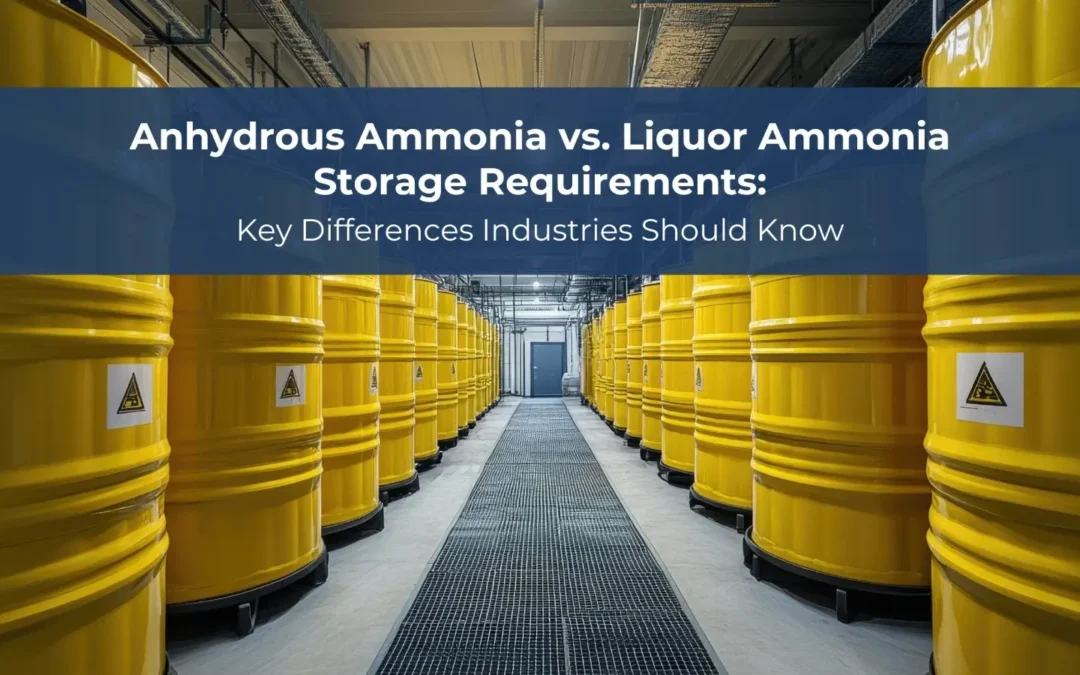We might have heard about the word ‘Ammonia’, either in the classroom or while shopping for household items. This chemical element has numerous properties and is used extensively in multiple industries, especially agriculture. Around 90% of produced Ammonia is utilized in this sector. Before diving into the application of Ammonia in agriculture, we must know the fundamentals of this element.
Ammonia is a colorless gas with a unique pungent smell formed through the reaction between Nitrogen and Hydrogen. The molecular formula of this element is NH3, and it is highly soluble in water. Due to the high reactivity of Ammonia, it is the world’s second-most-produced substance after Sulfuric Acid.
The common use of Ammonia is considered the most crucial chemical in block-building while manufacturing daily household products. Besides, it has applications in agriculture, metal treatment, and the petroleum industry.
Ammonia is known for having the highest Nitrogen content among all types of fertilizers. Therefore, besides having the potential risks and safety practices required during use, it is a widely popular source of Nitrogen; for Instance- when NH3 fertilizer is applied directly to soil with a highly pressurized liquid that will easily be vaporized if exposed to the air.
That is why it is placed 10 to 20 centimeters below the soil through tractor knives to react with soil water to form NH4 quickly. Ammonia requires optimum safety during storage and transportation since it is highly water soluble and quickly reacts with moisture available in the atmosphere and body.
Common Uses of Ammonia In Agriculture
Around 50% of agriculture production across the world is based on mineral fertilization. Since the worldwide population is growing rapidly, fertilizer consumption has increased significantly, and Ammonia is one of the crucial components in fertilizers.
It can bind the Nitrogen present in the air and makes Nitrogen available to food crops, an essential nutrient for them. Ammonia is vital in bringing food to our tables as a critical material in fertilizer production. Let’s have a look at common uses of Ammonia in agriculture.
Vital Role In Plant Nutrition
Plants need nutrients such as calcium, sulfur, potassium, phosphorus, Nitrogen, and magnesium to grow strong and produce fruits and crops. Similar to homo sapiens, different plants have specific nutritional requirements per soil, climate, and other conditions. Agricultural plants need around 20-350 kilograms of minerals throughout their growth cycle.
Unfortunately, the soil doesn’t contain the vital nutrients due to natural conditions, the climate could be more favorable, and minerals being eradicated by excessive harvesting. In such cases, fertilizer ensures the supply of essential nutrients to the plants and assures fruitful future cultivation. Ammonia is a base material used in producing fertilizer since it creates Nitrogen naturally, a vital nutritional need for plants and crops to grow.
Reducing Emissions
Around 1.8% of global energy output is consumed each year in the highly energy-intensive process of ammonia production, with over 80% of the energy required accounted for by steam methane reforming. As a consequence, approximately 500 million tonnes of carbon dioxide are produced, which represents about 1.8% of global carbon dioxide emissions.
Carbon emissions from fertilizer can be reduced if Green Ammonia is used as base material during fertilizer production. If carbon dioxide generated during the Ammonia manufacturing process can be reduced, the manufacturing units can achieve net zero targets by 2050. Carbon emission during Ammonia production can be reduced if low-carbon hydrogen is used during the Ammonia production process.
Different Types Of Ammonia/Amines In Agriculture
Ammonia or amines are utilized in the production of fertilizers as ammonium salt, which are acidic states of the amine. They are highly water-soluble and can be easily observed by the soil, and plants of sugarcane and rice directly absorb the ammonium form of these fertilizers. There are numerous uses of Ammonia in agriculture, some of which are mentioned below.
Anhydrous Ammonia (NH3)
Anhydrous Ammonia (NH3) is an effective and extensively used Nitrogen fertilizer, and it is simple to apply and readily available to manufacturers. However, NH3 is a hazardous chemical. The term “anhydrous” refers to the absence of water because NH3 consists of little to no water; it aggressively seeks moisture from soil, your eyes, throat, lungs, or skin. Any contact with anhydrous Ammonia could result in tissue dehydration, caustic burns, and frostbite.
NH3 is compressed into a liquid when utilized as an agricultural fertilizer, necessitating a significant amount of pressure and a specifically designed storage tank. Severe injuries are possible if not properly stored or transported.
Methyl Amines (CH3NH2)
Methyl Amines are colorful gasses and derivatives of Ammonia in which the methyl group substitutes only one Hydrogen atom. They are extensively used in many agriculture applications and processes. Methyl Amines are utilized to produce intermediates for multiple agrochemicals, including herbicides, fungicides, biocides, miticides, and insecticides. As a base material, they are used to produce agrochemicals with catalytic properties. Additionally, they are applied as a building block in manufacturing some surfactants. The best thing about Methyl Amines is they are excellent plant growth regulators and also work as dye-leveling agents.
Jaysons Chemical Industries – Your Partner For High-Quality Ammonia
Over the years, the demand for Ammonia has witnessed exponential growth. The growth of the Ammonia market primarily resulted due to the increasing population. The need for agricultural fertilizers and agrochemicals has increased due to the rapidly growing population. Furthermore, the pharmaceutical industry’s increasing demand for ammonia has caused a supply and demand gap. Jaysons Chemical Industries effectively fills this gap by providing premium Ammonia in liquid and gas form to diverse industries. Also, the company ensures the safe transportation of Ammonia across India.
Incorporated in 1966, the company is a promising name in the chemical industry and is recognized as one of the largest suppliers and dealers of anhydrous Ammonia; and has a vast supply network pan India. The product range of Jaysons Chemical Industries includes a wide variety of anhydrous Ammonia and liquor ammonia. The company is known for matching the purity standards of different industries and managing the smooth transportation and storage of anhydrous Ammonia as per the client’s needs.














